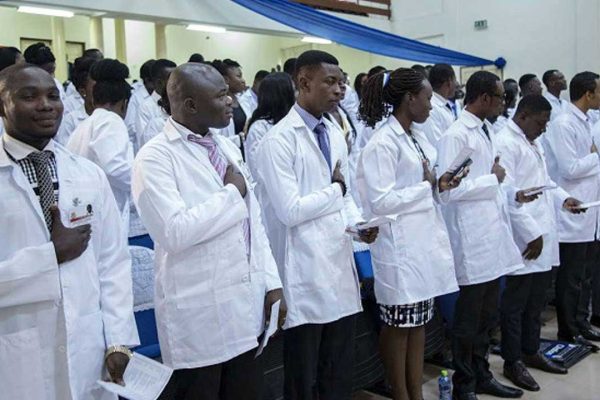Across Nigeria’s 36 states and the Federal Capital Territory, these are the five top news stories you shouldn’t miss:
Nigeria records 32 Lassa fever deaths in three weeks
At least 32 people have died of Lassa fever within the first three weeks of 2022, according to the situation report released by the Nigeria Centre for Disease Control (NCDC).
The report, which was released Saturday, disclosed that the number of confirmed cases increased from 48 in the second week of 2022 to 74 in week three, spanning January 17 to 23.
Governors lead opposition to reworked Electoral Bill
Governors, especially those of the All Progressives Congress (APC), are negating what they termed as “alleged two dangerous clauses in the re-amended bill on Electoral Act.”
The clauses include the provision for consensus and another which makes it mandatory for all political office holders to resign if they want to contest for any elective post in 2023.
According to The Nation, the governors are ready to take the fight to President Buhari to withhold assent until those parts of the bill are changed.
Protest as Anambra trader pays apprentice ₦100,000 after nine-year service
Traders and apprentices at the International Electrical Market, Obosi/Onitsha, Anambra Saturday, reportedly protested against a trader for allegedly giving his apprentice ₦100,000 nine years after serving him.
They were said to have demanded that the master treat his apprentice fairly by increasing the payment.
Fashion blogger says Nigerians celebrate questionable wealth
Fashion blogger, Nobel Igwe, was reacting to the recent viral report of a ritual killing involving four teenage boys in Abeokuta, Ogun.
Concerns as cybercriminals unleash SMS-based Android malware on Nigerians
Nigerian Communications Commission (NCC) has alerted Nigerians on a new high-risk Short Messaging Service-based malware, TangleBot, infecting Android mobile devices.
TangleBot gains control of the device, and is installed when an unsuspecting user clicks on a malicious link disguised as COVID-19 vaccination appointment-related information in an SMS message or information about fake local power outages that are due to occur.
NCC explained that the aim behind both or either of the messages (on COVID-19 or impending power outages) is to encourage potential victims to follow a link that supposedly offers detailed information.














